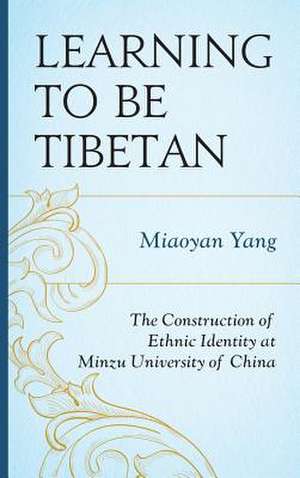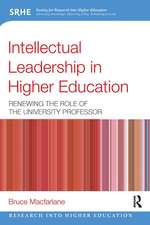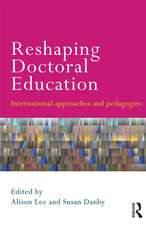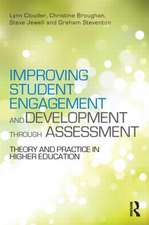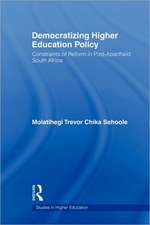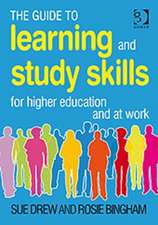Learning to Be Tibetan: Emerging Perspectives on Education in China
Autor Miaoyan Yangen Limba Engleză Hardback – 16 mar 2017
Preț: 793.21 lei
Preț vechi: 1086.59 lei
-27% Nou
Puncte Express: 1190
Preț estimativ în valută:
151.80€ • 158.28$ • 126.16£
151.80€ • 158.28$ • 126.16£
Carte tipărită la comandă
Livrare economică 21 martie-04 aprilie
Preluare comenzi: 021 569.72.76
Specificații
ISBN-13: 9781498544634
ISBN-10: 1498544630
Pagini: 322
Dimensiuni: 152 x 229 x 23 mm
Greutate: 0.62 kg
Editura: Rowman & Littlefield
Seria Emerging Perspectives on Education in China
ISBN-10: 1498544630
Pagini: 322
Dimensiuni: 152 x 229 x 23 mm
Greutate: 0.62 kg
Editura: Rowman & Littlefield
Seria Emerging Perspectives on Education in China
Cuprins
Part I: Research Background, Conceptual Framework and Methodology
Chapter 1: Introduction
Chapter 2: Literature Review and Conceptual Framework
Chapter 3: Methodology
Chapter 4: Chinäs Ethnic Tibet and the Education of Tibetans
Chapter 5: Minzu University of China: The Context of Tibetan Identity Construction
Part II: Research Findings
Chapter 6: The Tibetan Studies Min Kao Min Students: Ethnicity as Mission
Chapter 7: The Non-Tibetan Studies Min Kao Min Students: Ethnicity as Difference
Chapter 8: The Inland Tibet School Graduates: Ethnicity as Reflective Awareness
Chapter 9: The Min Kao Han Students: Ethnicity as Symbol
Chapter 10: Toward the Development of Tibetan Culture
Chapter 11: Learning to be Ethnic: Conclusions and Discussions
Appendix 1: List of Main Events Observed in Minzu University of China in 2011
Appendix 2: Course Contents of "Theories and Policies on Ethnic Minorities"
Appendix 3: Interviewee List (Tibetan)
Notă biografică
Miaoyan Yang is assistant professor in the Department of Sociology and Social Work at Xiamen University.
